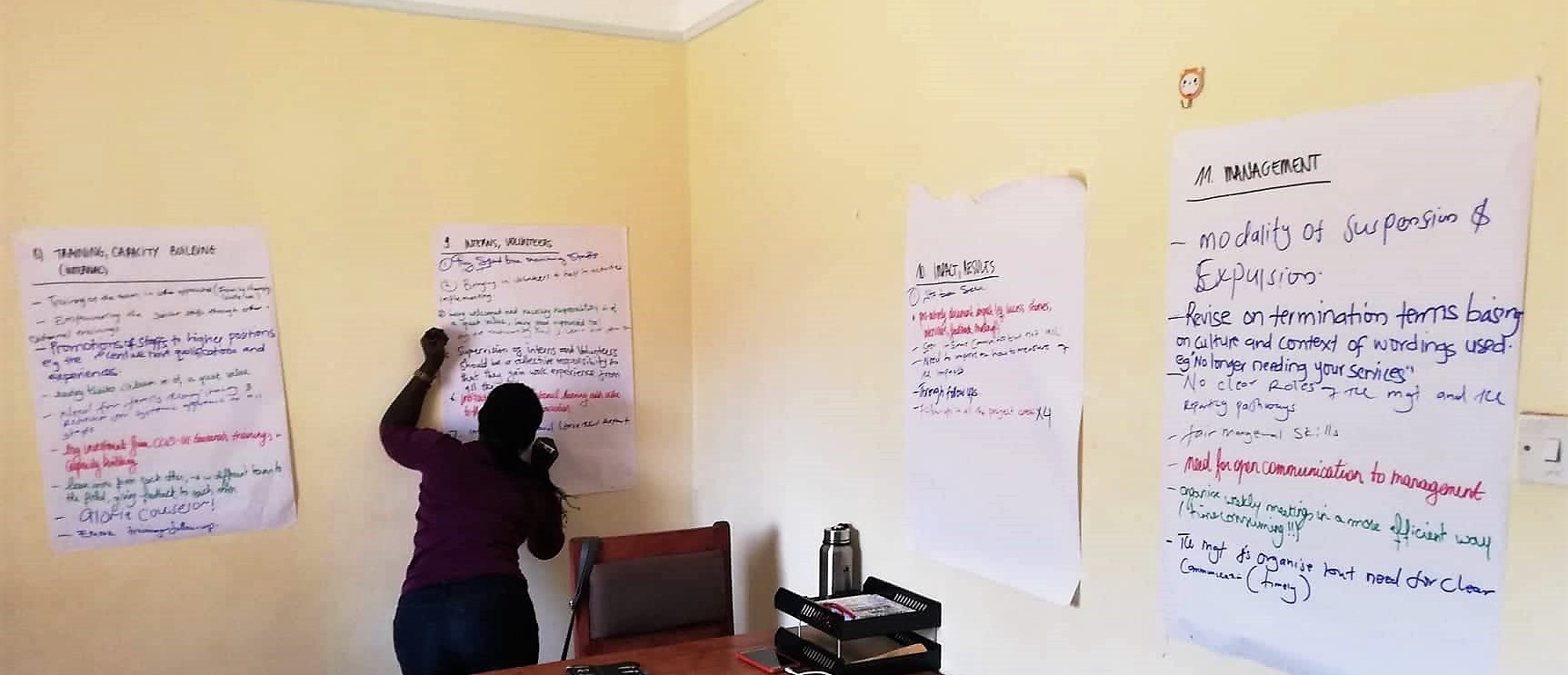PSYCHOSOCIAL WELL-BEING OF ADOLESCENT VICTIMS OF SEXUAL VIOLENCE IN EASTERN CONGO
Country
DRCongo
01/02/2010 - 30/06/2014
Department of Peace Building, Belgian Federal Public Service Foreign Affairs, Foreign Trade and Development Cooperation
Eastern Congo has been undergoing a grueling conflict for over decades. Sexual violence was used as a weapon of war on a large scale, victimizing thousands of women and girls. In the post-conflict society sexual violence remains a problem with a rising number of acts of sexual violence on minors. This study focuses on the psychological and social well-being of minor victims of sexual violence. Through a mixed-method study we seek to explore the different psychological and social consequences of sexual violence for the victims and their environment, and furthermore identify risk and protective factors.
SOCIAL CONTEXT
The East of the Democratic Republic of Congo (DRC) has been scorned by war for over a decade, having a devastating impact on civilians and especially children. Recent research estimates that 95% of all 13 to 21 year olds in Ituri-province in Eastern DRC experienced at least one violent and potentially traumatic event, leading to high prevalences of psychological problems, in particular for girls (Mels et al., 2009). This latter finding is most likely related to the high prevalence of sexual violence girls face in Eastern Congo. The conflict has been marked by the use of sexual violence on a horrific scale as a 'weapon of war', while the current post-conflict context is characterized by a worrying increase in civilian rape. Recent research has questioned whether sexual violence has become ‘normalized’ since it is increasingly occurring within community and family contexts.
OBJECTIVES
This study aims to focus on the impact of sexual violence on adolescent girls’ psychosocial well-being in the post-conflict context of Eastern Congo. Through a triangulatory approach this research projects considers both risk factors as protective factors as indentified by the girls influencing the psychosocial well-being of girls that have been a victim of sexual violence.
PROJECT DESCRIPTION
Inspired by the vision of CCVS this research seeks to build this research project in framework that values a socio-ecological model, wants to offer a voice to the girls themselves and underwrites a strengths based approach. Firstly the research looks into the social and cultural perspectives and ideas that exist and serve to deny and justify sexual violence towards women and girls. Research has shown that those beliefs could have a great impact on the social reactions to sexual violence, the behavior and decision making processes by professionals (legal officials, psychologists,…) and the psychosocial well-being of the victim. From the practice oriented stance of doing research that CCVS subscribes to, these perspectives and ideas on rape, rape victims and its perpetrators could offer ground to set up culturally and locally adapted sensitization, preventive and psychosocial interventions. A second quantitative study in this research project explores the risk and protective factors in relation to the psychosocial well-being of minor victims of sexual violence in the Ituri region. Different factors that could influence the psychosocial well-being are administered in a large group of 1300 adolescent girls providing important information for interventions on a large scale. Lastly the research project entails an extensive qualitative study with adolescent girls that have been victims of sexual violence. Through interviews, discussion groups and an empowering photo project the girls are given space to share their voice to tell their stories and express their own perspective on their lives.
